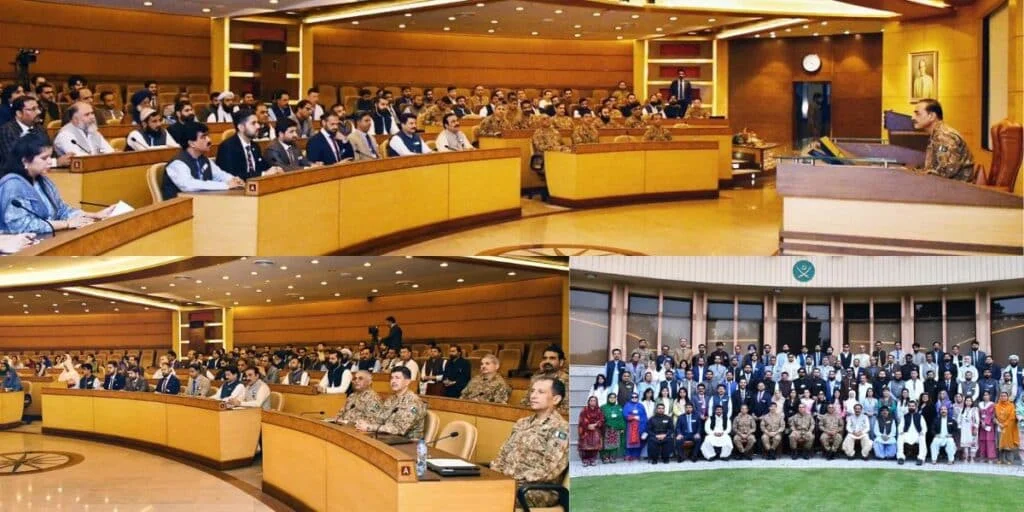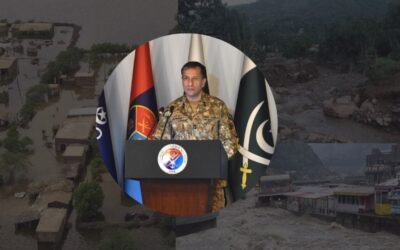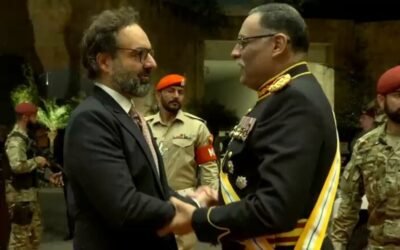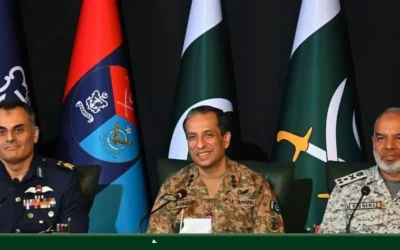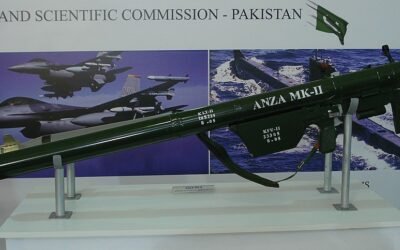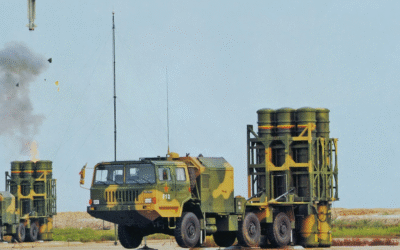Rawalpindi, Pakistan | July 30, 2025 — Chief of Army Staff (COAS) General Syed Asim Munir has reiterated the Pakistan Army’s unwavering commitment to eradicating terrorism from the country. Addressing officers and soldiers during his visit to the Corps Headquarters in Peshawar, the Army Chief underscored the complex security challenges facing Pakistan, particularly those driven by foreign-backed destabilization campaigns. He highlighted how hostile elements have long sought to disrupt Pakistan’s peace through proxy networks, referring to these threats as “Fitna-al-Khawarij” and “Fitna-al-Hindustan.”

Source: ISPR
Standing Firm on the Front Lines
General Munir’s visit to Peshawar—an area that has experienced repeated militant activity—was aimed at personally engaging with troops operating on the front lines. He praised their courage, resilience, and sacrifices in protecting the nation. The COAS paid tribute to martyrs and their families, noting that their sacrifices have safeguarded Pakistan’s sovereignty and stability. His words served as a morale boost for officers and soldiers deployed in demanding conditions, especially along the western borders where remnants of militant groups attempt to exploit instability. Pakistan’s decades-long fight against terrorism, though costly in both lives and resources, has also demonstrated the state’s enduring resolve to secure peace.
Exposing Foreign-Sponsored Proxy Networks
General Munir stressed that Pakistan’s security apparatus is fully aware of the designs of foreign-backed groups attempting to destabilize the country. The Army Chief reaffirmed that such hostile efforts will never succeed, as the state and its people remain united. Over the years, Pakistan has repeatedly presented evidence at international forums about external support for proxy networks operating along its borders. The military leadership continues to emphasize vigilance, intelligence-based operations, and strengthened regional cooperation to counter these threats effectively.
“Fitna-al-Khawarij”: Combating Extremist Ideology
The COAS described militant outfits that misuse religion for violent purposes as “Fitna-al-Khawarij.” This terminology, widely used in Pakistan’s security discourse, emphasizes that such groups deviate from mainstream Islamic principles, rejecting peace and unity. By categorizing them as ideological deviants rather than legitimate religious actors, the state seeks to weaken their narrative and foster unity among the population. In recent years, Pakistan has also enhanced its counter-narrative campaigns in media, education, and community engagement to curb extremist propaganda and prevent recruitment.
“Fitna-al-Hindustan”: Thwarting Destabilization in Balochistan
General Munir also referred to “Fitna-al-Hindustan,” a term used for foreign-backed militant factions operating in Balochistan. These groups, Pakistan maintains, aim to undermine development projects and disrupt peace in the province. The COAS noted that Balochistan’s people have consistently demonstrated their patriotism and aspirations for progress. The government, in coordination with the armed forces, continues to invest in socio-economic development under initiatives like the China-Pakistan Economic Corridor (CPEC), aiming to uplift communities and isolate anti-state actors. General Munir made clear that attempts to sabotage stability in Balochistan are acts of hybrid warfare that will not succeed.
A Collective National Effort
Reaffirming the state’s position, General Munir declared that “the Pakistan Army, with the full support of the nation, is determined to uproot terrorism in all its forms.” This message reassures citizens and sends a clear signal to adversaries that Pakistan’s response will be decisive and unified. Current strategies combine kinetic operations against militants with community development, intelligence-based policing, and modern border management systems.
The military leadership emphasizes that national security requires a holistic approach: safeguarding borders, countering extremist ideologies, and promoting socio-economic progress. With the sacrifices of soldiers and citizens as a foundation, Pakistan remains determined to overcome the menace of terrorism. General Munir’s visit to Peshawar symbolized not only solidarity with troops but also the resilience of a nation that continues to face challenges with unity, discipline, and hope for a secure future.

